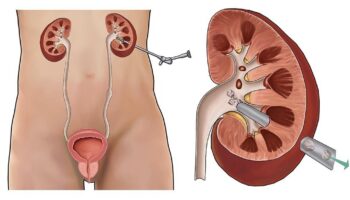Gastric bypass surgery is a common weight loss surgery that helps people to lose weight. This treatment also helps improve other conditions associated with obesity, such as diabetes and high cholesterol. For people with weight issues, gastric bypass can be an effective and life-changing treatment. If you are interested in weight loss surgery, the first step is to consult a bariatric surgeon. Specialists perform gastric bypass in Frisco to help individuals overcome weight-related conditions. Here is everything you need to know about Gastric Bypass surgery, the risks and benefits, and how it works before and after surgery.
Who is the right candidate for gastric bypass?
Not all obese people need this procedure. Eligibility for weight loss surgery depends on your body mass index (BMI), which measures body fat using height and weight. To qualify for gastric bypass surgery, you must have a BMI greater than or equal to 40.
Your doctor may recommend gastric bypass if you have a BMI of more than 35 or more. There is an underlying medical condition such as high blood pressure, type 2 diabetes, high cholesterol, asthma, acid reflux, or liver disease.
Also, if you have a BMI of 30 to 35 with an existing diabetes condition, your doctor may suggest you undergo this procedure.
What to expect during surgery
Gastric bypass involves reshaping the stomach to limit the amount of food it can hold. As a result, it limits the number of calories the body can absorb, a process known as malabsorption.
During the procedure, part of your stomach is detached and connected to the middle of the small intestine, bypassing part of the digestive tract.
As a result, your body absorbs fewer calories, so you feel full after eating less. Typically, your surgeon inserts certain devices into the abdomen through small incisions in a procedure known as laparoscopic surgery.
What are the possible complications?
Laparoscopic surgery is considered safe and has the added benefit of shorter hospital stays and a lower risk of complications compared to open surgery. However, complications may occur in negligible cases, including infection at the surgery site and effects of anesthesia.
In addition, gastric bypass changes the way your body metabolizes food and nutrients. Hence, certain nutrient deficiencies may be common after surgery.
Your doctor monitors your nutrients level after surgery to make sure you stay healthy. If you have low levels of any nutrients, the doctor may prescribe supplements such as folate, iron, vitamin D, and vitamin B12.
Most patients are concerned about their physical appearance after surgery. Unfortunately, it is difficult to predict whether you will have excess skin after surgery or not. However, the final way to get rid of excess skin is through a cosmetic procedure known as body contouring.
Gastric bypass leads to weight loss in the short and long term. While there are some potential side effects, such as nutritional deficiencies, you will see a significant improvement in your quality of life during the first year after surgery. Contact the specialists at LoneStar Bariatrics for assessment and treatment.




